14 Best Asana Alternatives & Competitors in 2025
Looking for an Asana alternative? You're not alone.
Since Asana was launched in 2008, it has been adopted by millions of users and remains one of the top project management tools on the market. It owes its popularity to its elegant interface, extensive feature set, and its wide range of integrations. It's a great solution for everything from organizing a simple to-do list to managing complex projects with multiple moving parts.
But as great as it is, Asana might not be the perfect fit for everyone. Maybe you're looking for something with a different set of features or a different pricing model. Maybe you're just a little tired of the same old thing and are looking for something new and exciting. Whatever your reason may be, you're in luck! There are plenty of alternatives to Asana out there that are worth checking out.
Why you may need an Asana alternative
While Asana is a popular project management tool, it's not without its limitations and there are many reasons why you and your team may be evaluating Asana alternatives:
The interface of Asana is not as intuitive and user-friendly as it could be, and some functionality comes with a learning curve (source)
The feature set of Asana is substantial, but many features do not create much value for smaller teams and only add to the overall complexity (source)
Some users found Asana's customer service to be slow and unhelpful (source)
Recent updates to the interface and the pricing structure were not well-received by some of the users (source)
Some limitations of Asana can be frustrating, such as only being able to assign a single person to a task (source)
Does that sound familiar? Then it may be time for you to switch to a more user-friendly alternative to Asana.
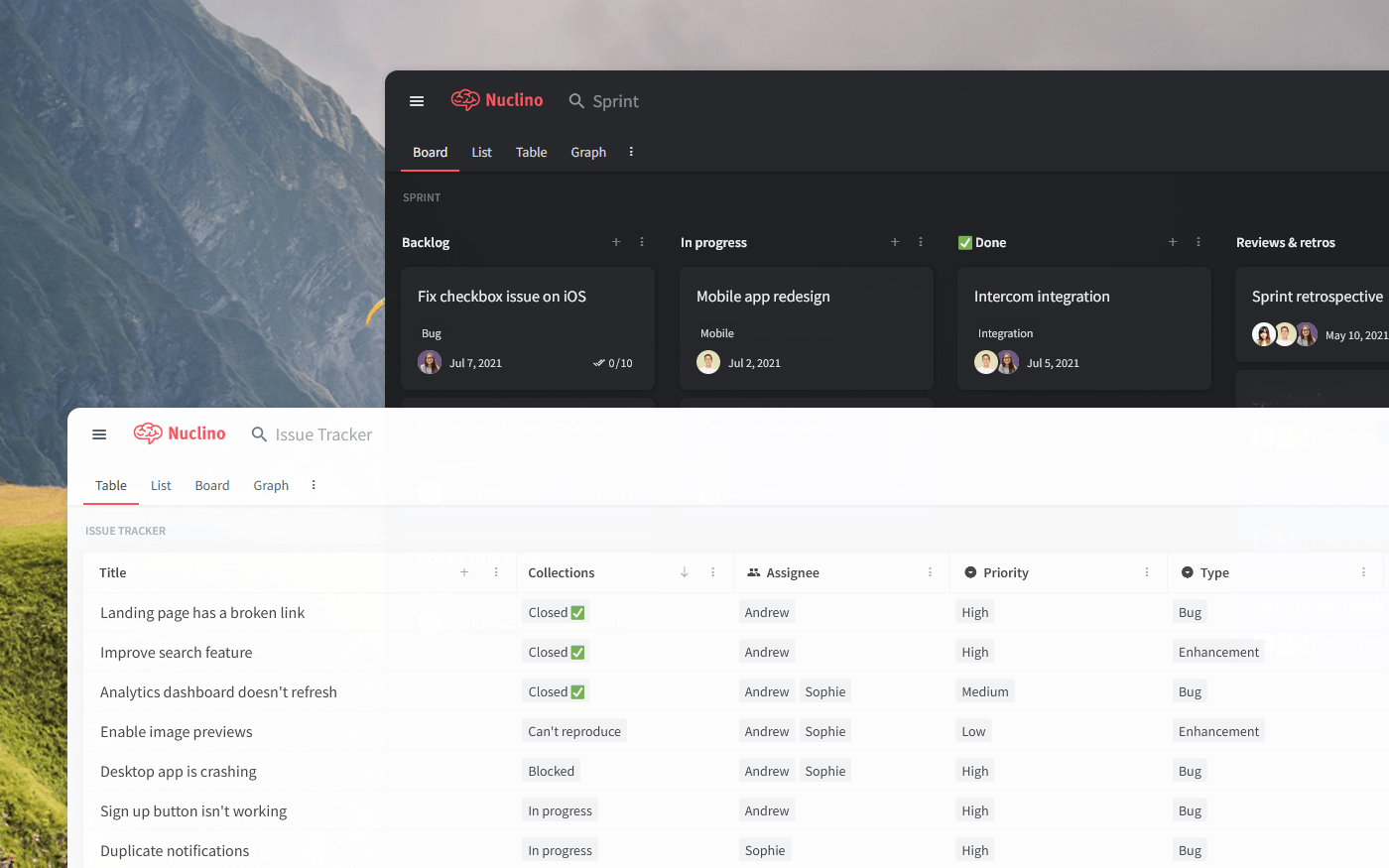
14 best Asana alternatives
Fortunately, there are many Asana competitors you can choose from. There is no one-size-fits-all solution — every Asana alternative comes with its own unique strengths, design decisions, and feature sets. Depending on your project management workflow, a different tool may fit your needs better than Asana.
To make your decision easier, we've put together a list of the best alternatives to Asana, based on real reviews.
Whether you're a team leader, a project manager, or just someone looking to take their productivity to the next level, read on to learn more about the best Asana alternatives.
1. Nuclino
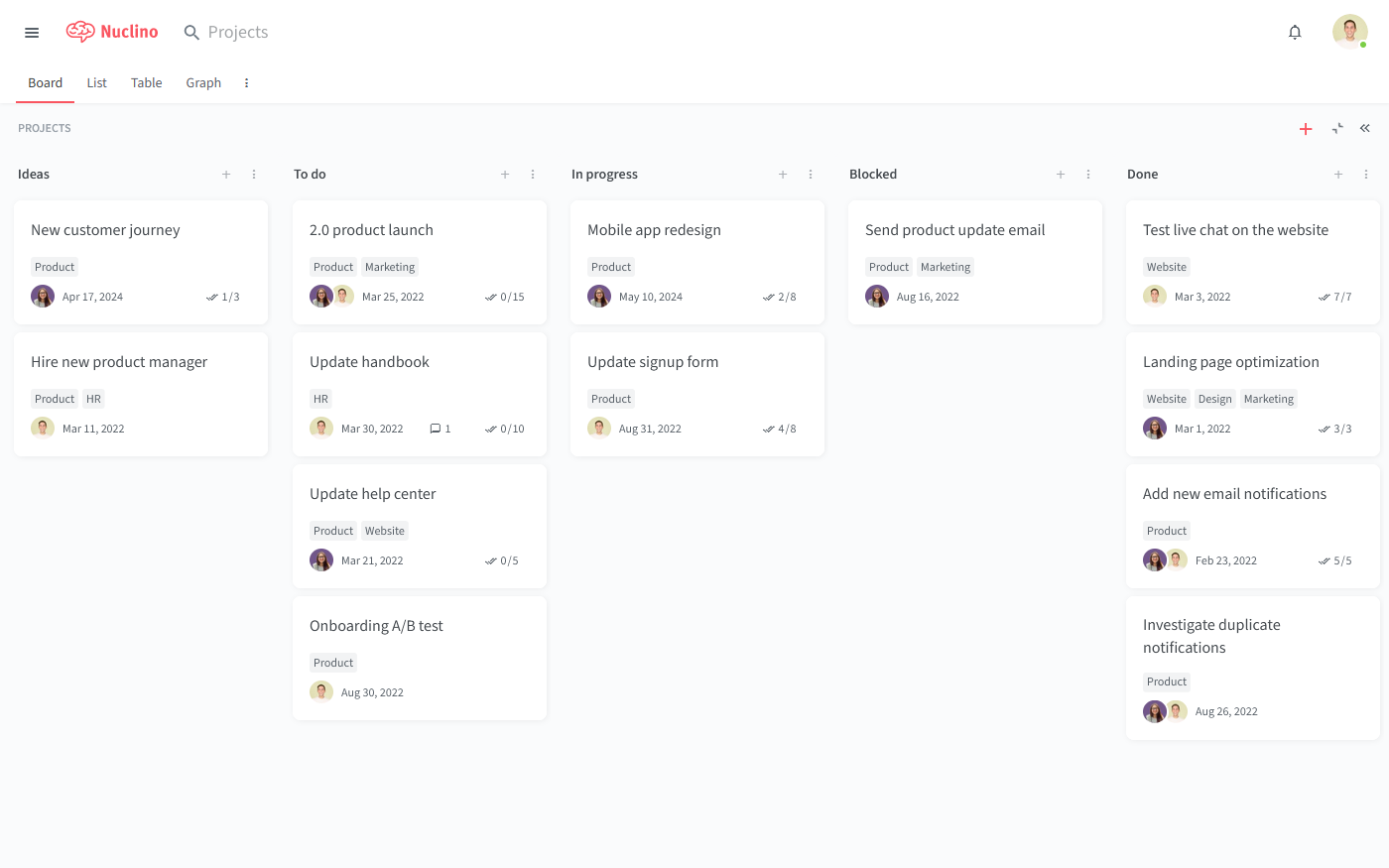
Pricing: Free, advanced features starting from $6/user/month
Rating on Capterra: 4.7/5
Nuclino is an Asana alternative that is focused on ease of use and speed above all. It offers all the essential features necessary for managing a project but keeps its feature set limited by design.
In Nuclino, you will find a familiar Kanban board, where you can drag and drop cards, and custom fields that allow you to track additional information about each card, such as due dates, assignees, labels, and more. But all of that comes in a much more lightweight and minimalist package.
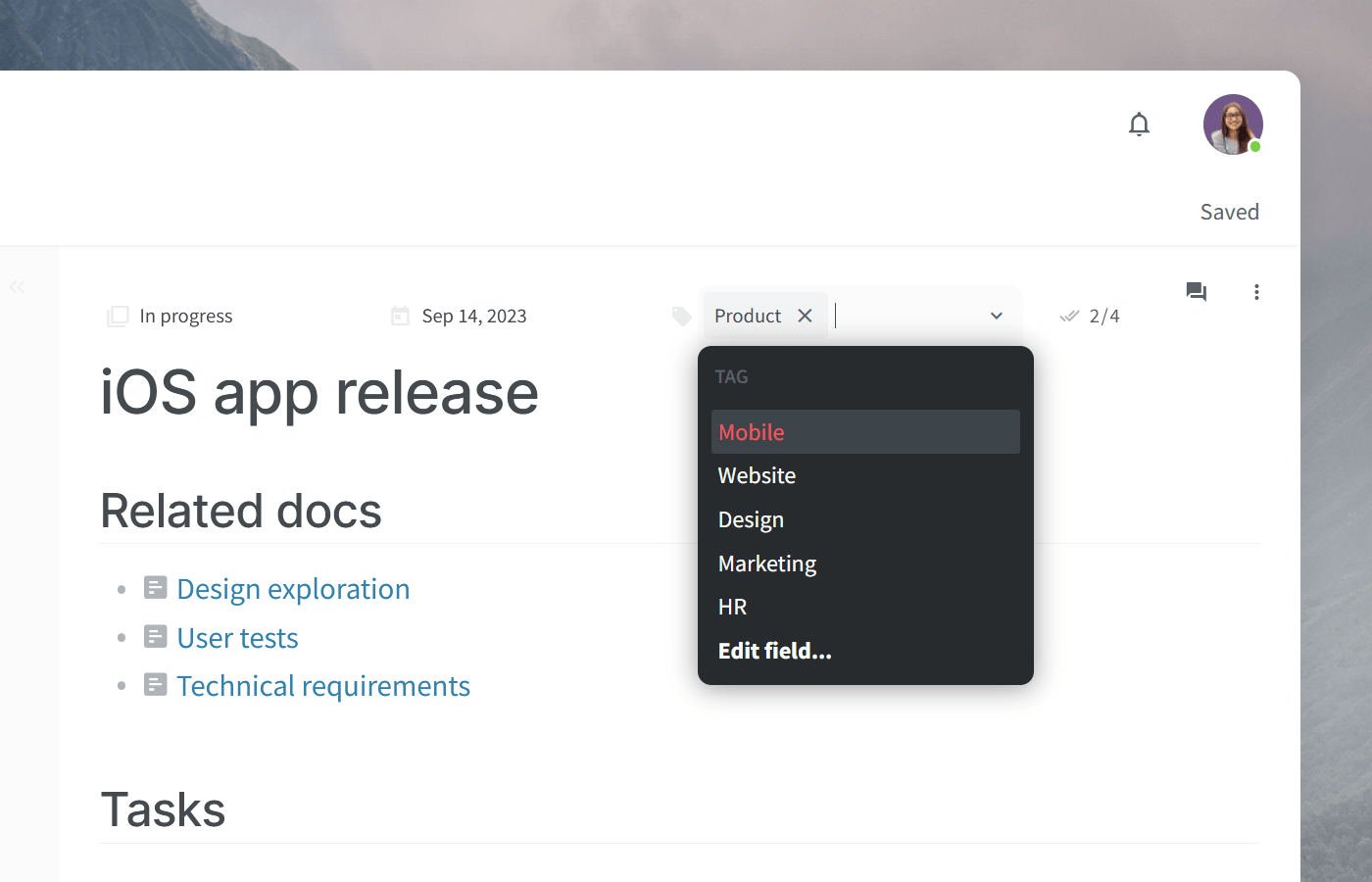
Nuclino is designed like a hybrid of Asana and Google Docs, bringing together structured projects and rich long-form content. Every card on your Kanban board is its own document that can be collaborated on by multiple users in real time.
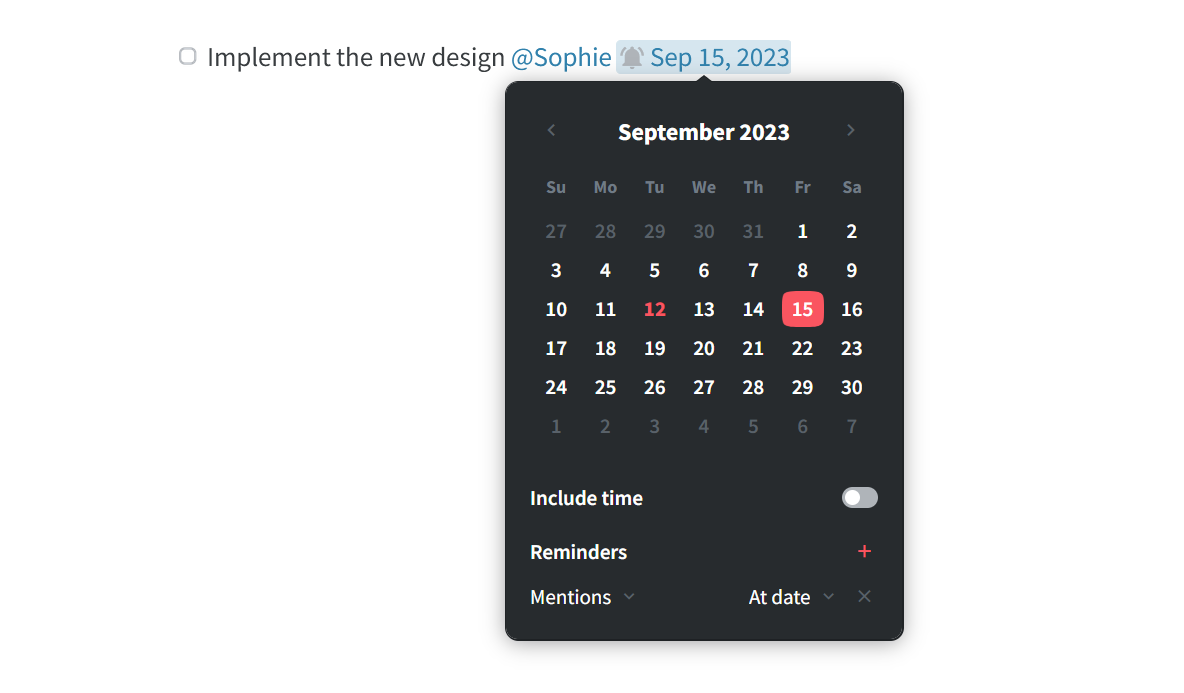
You can add notes, assign tasks with due dates, and embed files, consolidating everything you need to get the job done in one place. Comments and mentions make it easy to exchange feedback directly in Nuclino and preserve the context of every decision.

Like Asana, Nuclino doesn't limit you to the board view. If the Kanban approach is not your thing, you can organize your projects in a hierarchical list, a table, or a mindmap-style graph instead.
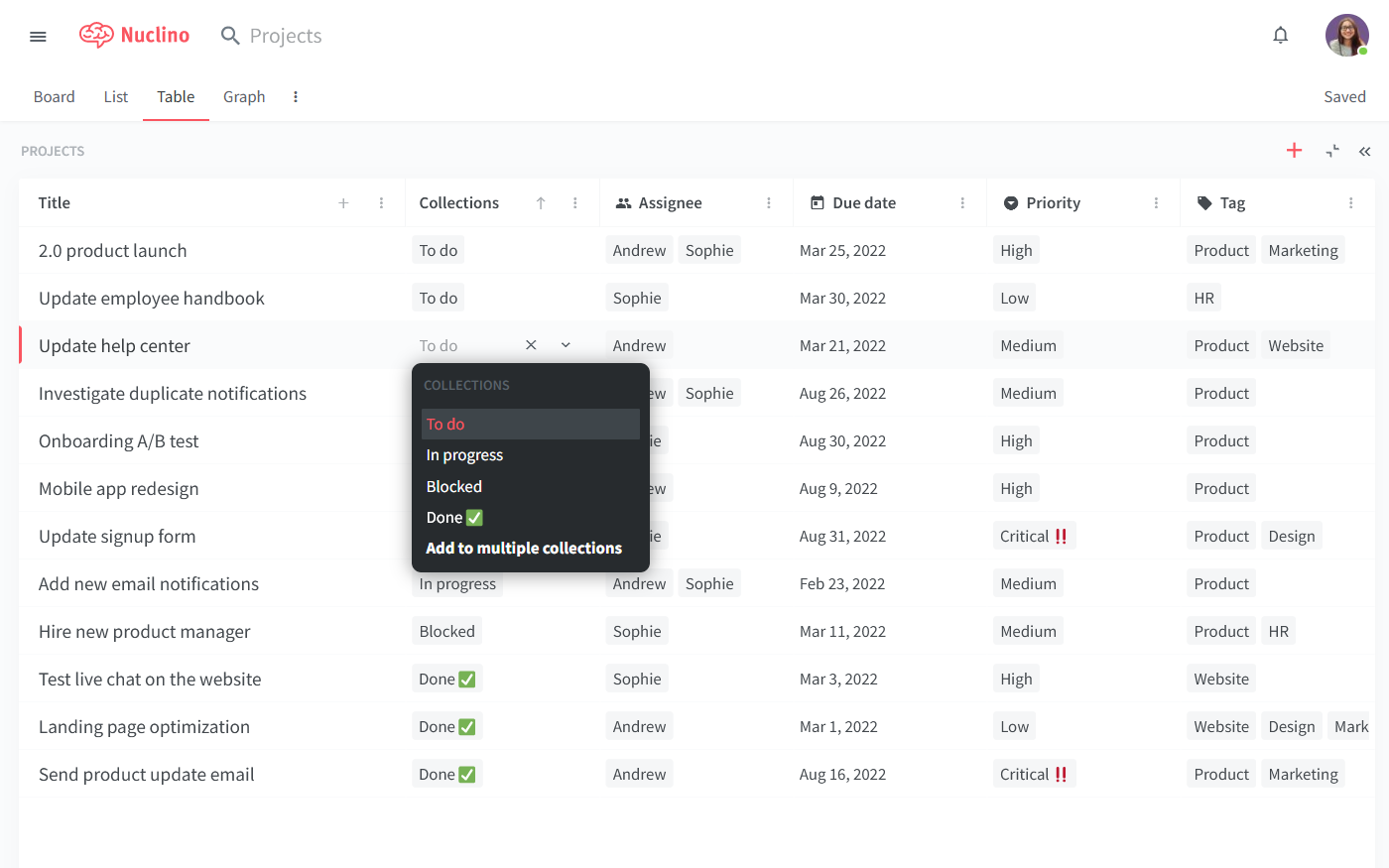
This versatile approach to structuring data makes it a great tool not only for managing your tasks and projects, but also for taking notes, creating internal documentation, and building an internal knowledge base for your employees or a private wiki. It's a unified workspace that brings all your team's knowledge, docs, and projects together in one place — like a collective brain.
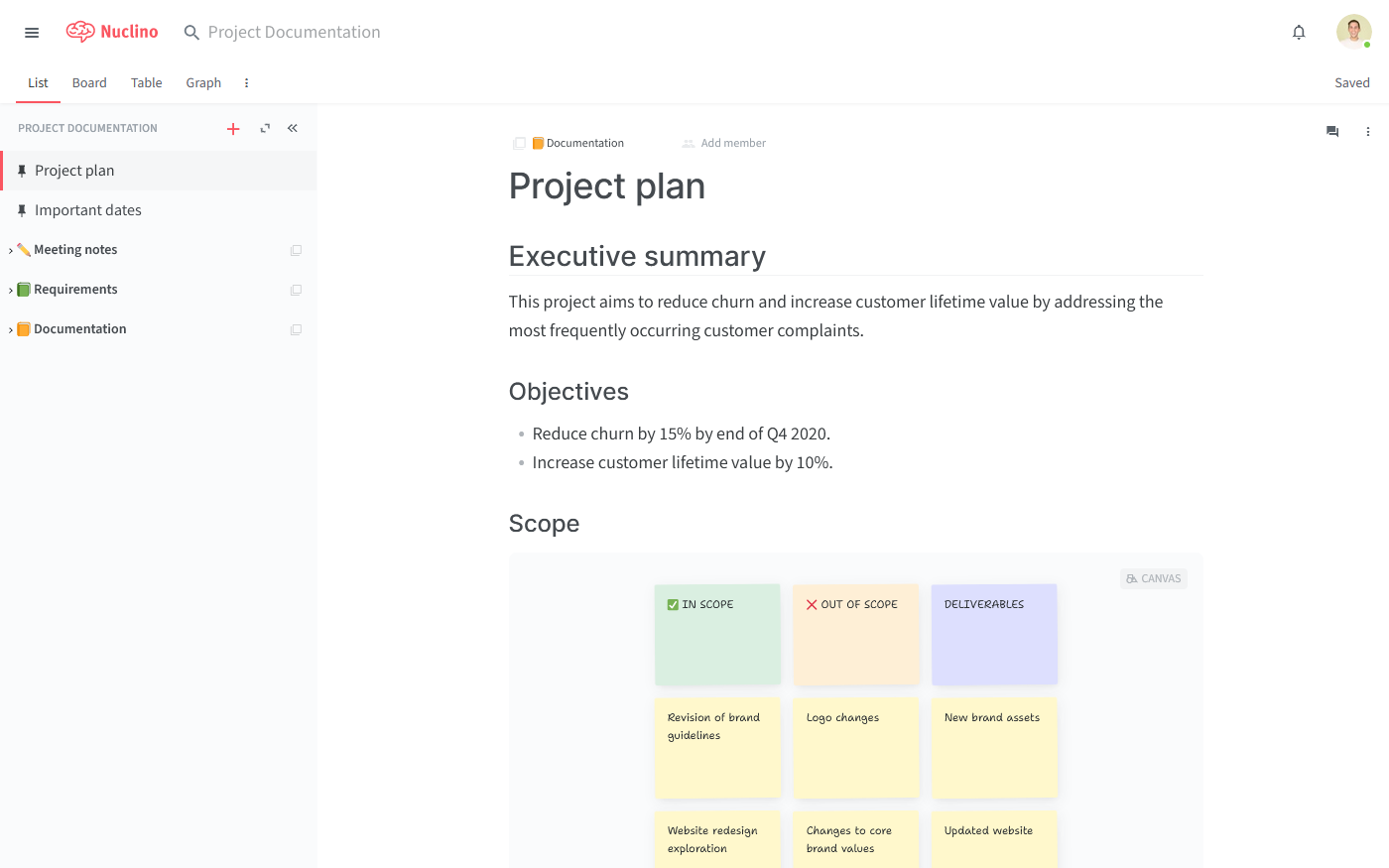
What makes Nuclino a great alternative to Asana:
Nuclino comes with a minimal learning curve and works out of the box.
The interface of Nuclino is clean, uncluttered, and distraction-free.
Nuclino combines rich long-form content with structured tasks, making it easy to keep your work in context and replace not only Asana, but also Google Docs.
Nuclino allows you to visualize your work in various flexible ways, including the Board, List, Table, and Graph views.
Nuclino offers a seamless collaboration experience with real-time editing, comments, and mentions.
What users say about Nuclino:
"The way Nuclino is built makes the platform very flexible towards the way you work. I use Nuclino to document the projects I work on. It serves as a wiki for the project which helps anyone joining the project at later stages understand what was done during the design process, and why certain decisions were made."
2. Trello
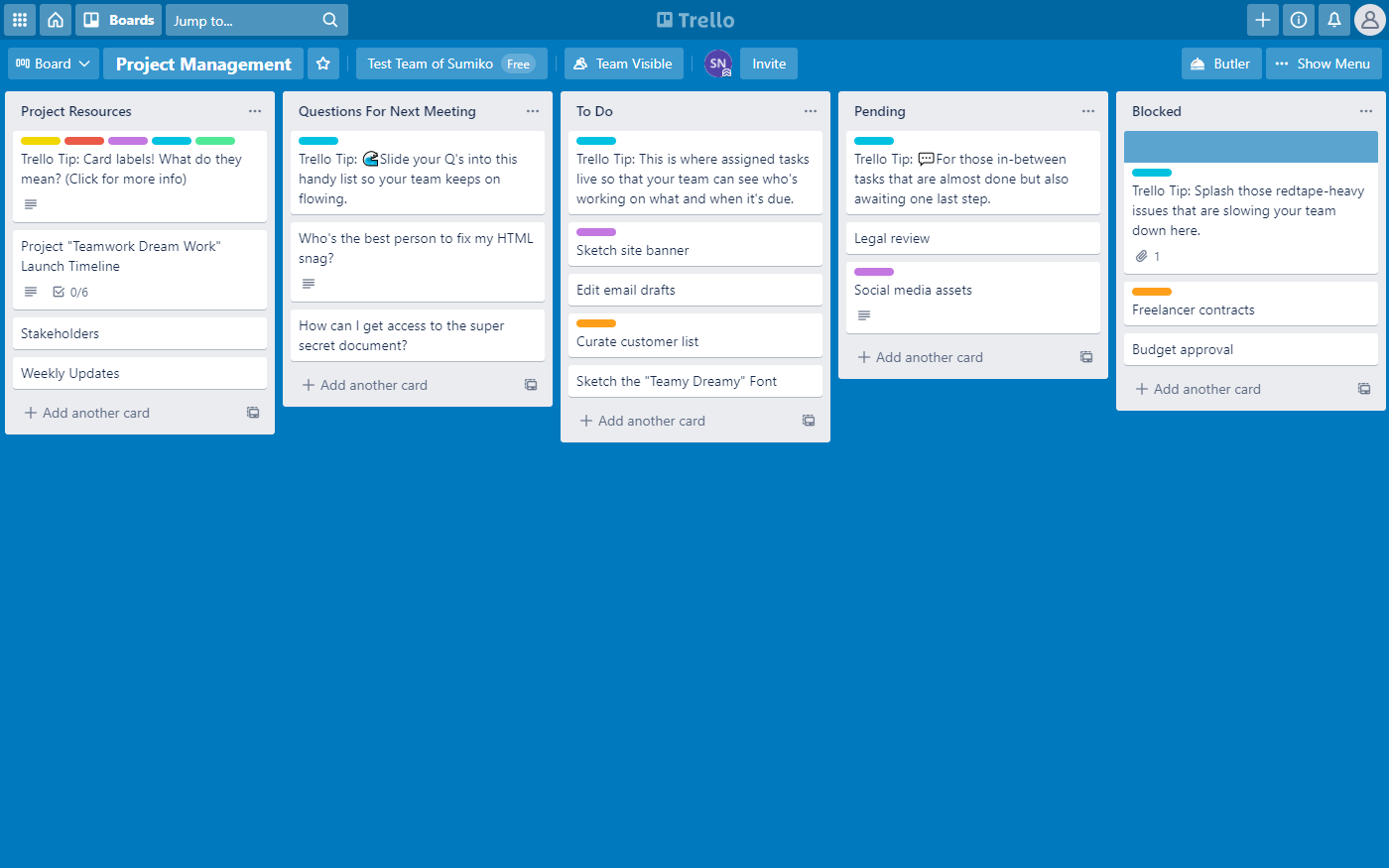
Pricing: Free, advanced features starting from $5/user/month
Rating on Capterra: 4.5/5
Trello is another easy and intuitive Asana alternative. It's a simple yet flexible Kanban tool designed for small teams, freelancers, and hobbyists. It doesn't have much of a learning curve and makes the initial setup quite painless.
Unlike Asana, Trello makes it easy to directly add freelancers and external partners, rather than having to rely on email.
And while it doesn't have all the bells and whistles that Asana offers, it makes up for it with a more intuitive interface. If you are a small team and are looking for something easier than Asana, then Trello can be a great option.
What makes Trello a great alternative to Asana:
The initial configuration is quick and easy.
The interface of Trello is simple and intuitive.
Trello enables seamless collaboration with external partners.
Learn more about how Trello compares to Asana: Trello vs Asana.
Looking for more tools similar to Trello? Check out this list of Trello alternatives.
What users say about Trello:
"We used to use Asana but the interface made it hard for users to adopt. After switching to Trello we had a 100% adoption rate. There are a ton of add-on features and it integrates easily with other systems out there. The visual card approach makes viewing and managing projects really easy."
3. Jira
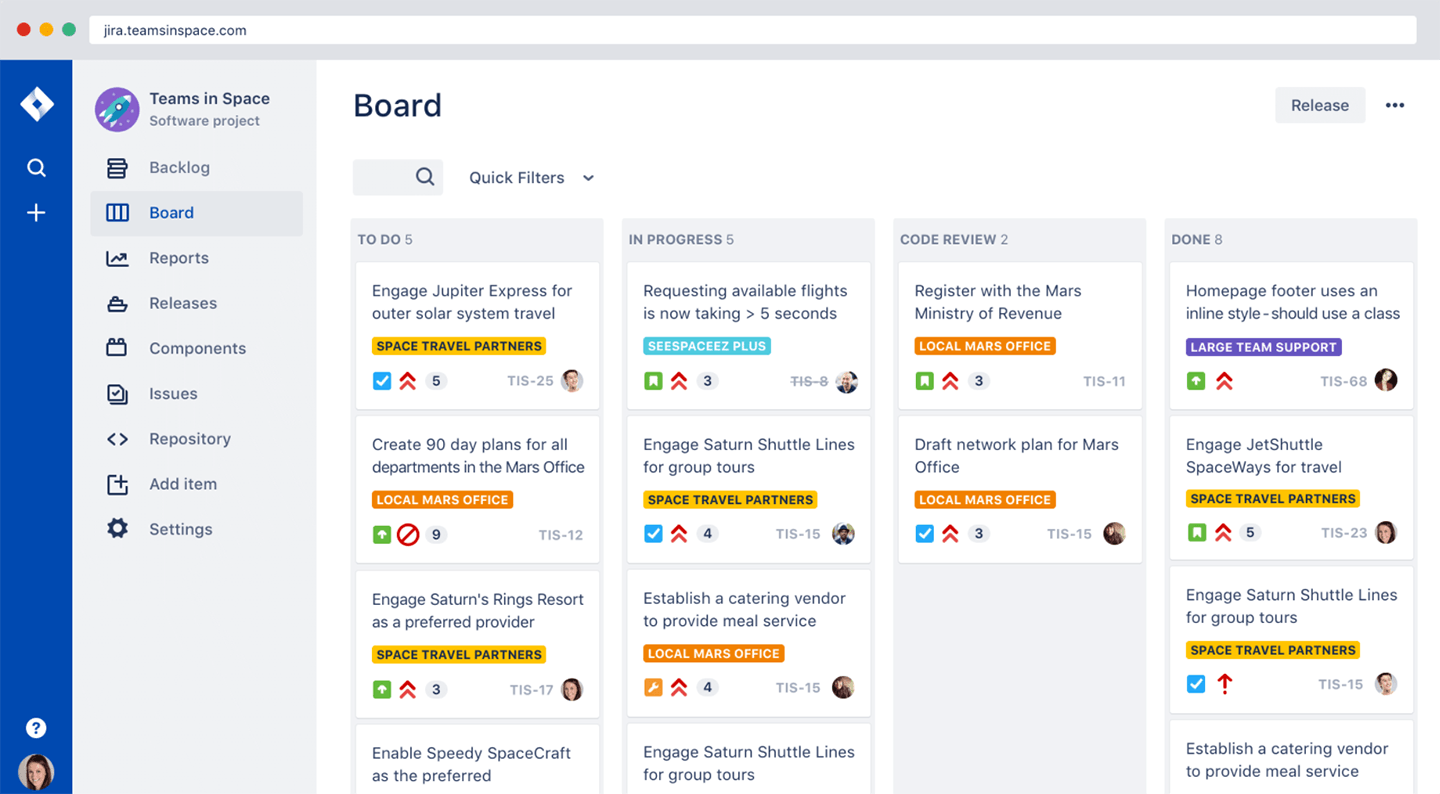
Pricing: Free, advanced features starting from $7.75/user/month
Rating on Capterra: 4.5/5
Jira is owned by the same company as Trello – Atlassian. And while both tools can both serve as Asana alternatives, they are two very different solutions.
Jira is, first and foremost, a project management tool for Agile software development teams. It allows you to plan sprints, prioritize your backlog, define epics and user stories, and more.
It's exceptionally powerful, allowing you to manage the most complex and large-scale projects. At the same time, it's very feature-heavy and comes with a steep learning curve. It can be a great asset for large, experienced software development teams, but for everyone else, it can be confusing and unintuitive.
What makes Jira a great alternative to Asana:
Jira has an exceptionally advanced feature set, built with developers in mind.
Jira tightly integrates with other products in the Atlassian suite, such as Confluence and BitBucket.
Jira offers numerous configuration and customization options, as well as a wide selection of plugins and add-ons.
Learn more about how Jira compares to Asana: Asana vs Jira.
Looking for more tools similar to Jira? Check out this list of alternatives to Jira.
What users say about Jira:
"While monday.com and Asana are strong contenders, the ecosystem around Jira and strong integrations make Atlassian more compelling."
4. ClickUp
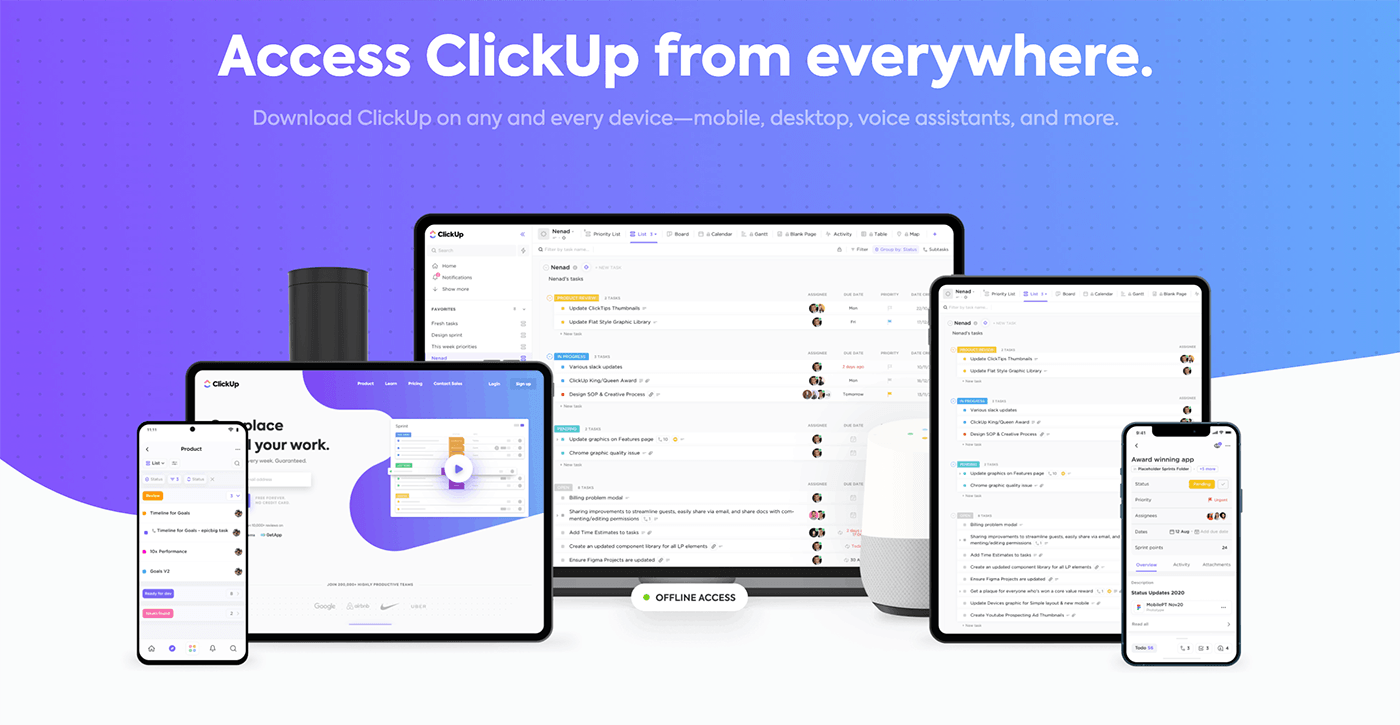
ClickUp is an all-in-one work management solution for small and large teams across different industries. It is a powerful and more flexible alternative to Asana, offering 24/7 customer support, a feature-rich experience even on its Free Forever plan, and an intuitive interface.
ClickUp's features, customization, and simplicity make it an ideal Asana alternative for teams that want to work smarter, not harder.
Its tools complement every team, from marketers to software engineers. Multiple Views in ClickUp including Gantt, Mind Maps, List, and its Kanban-like Board view allow you to choose the optimal way to see current tasks, and customizable statuses let everyone know which stage your project is in. Plus, ClickUp seamlessly connects to your tools with 1,000+ integrations like email, cloud storage, messaging, and more.
What makes ClickUp a great alternative to Asana:
ClickUp has a rich set of features available even on the Free Forever Plan.
The UI is intuitive and easy to grasp at a basic level.
ClickUp offers a consistent organizational hierarchy and multiple views including Board, Gantt, List, and Mind Map to customize the way you work.
The robust Docs feature gives the ability to add nested pages and makes it easy to collaborate, share, edit, comment, and assign comments in real time.
ClickUp has over 1,000+ integrations.
Looking for more tools similar to ClickUp? Check out this list of ClickUp alternatives.
What users say about ClickUp:
"The user experience of ClickUp is outstanding while providing users the functionality they need. The best thing about ClickUp has been the changes to how we work. We tried other products before but they never really stuck (Monday, Jira, Asana, etc.). ClickUp is the first platform we have used consistently and everyone at the firm has found value in it."
5. Taiga
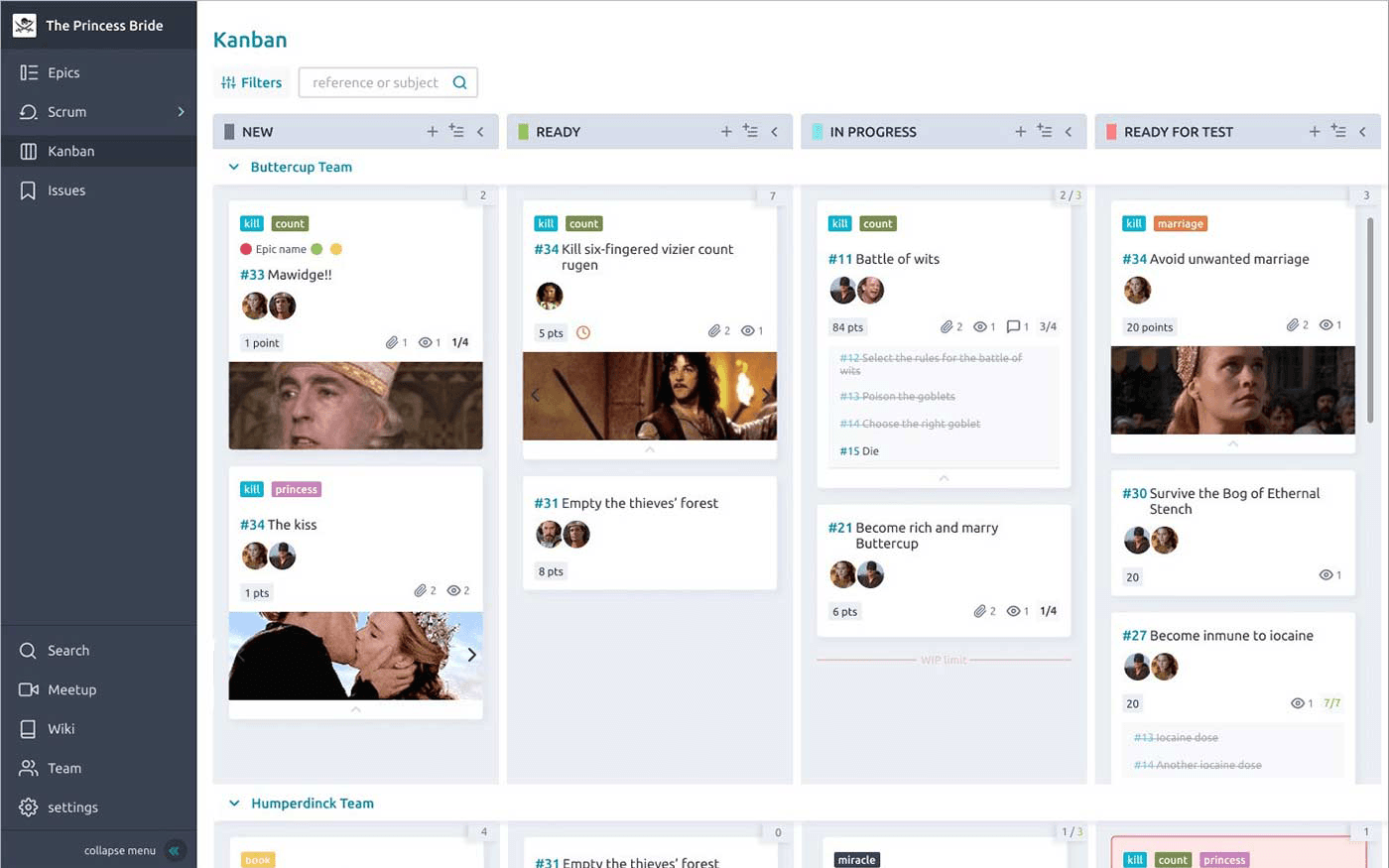
Pricing: Free, advanced features starting from $5/user/month
Rating on Capterra: 4.4/5
If you are running a software development team and are looking for a free project management tool or Kanban software similar to Asana, Taiga is an option worth considering. Taiga is a project management and issue tracking tool designed with Agile teams in mind. What makes it stand out is that it's one of the few open-source, self-hosted, and free Asana alternatives.
Taiga offers a wide variety of features that developers may appreciate, including customizable Kanban boards, WIP limits, burn-down charts, performance dashboards, and more. All that comes with an unexpectedly user-friendly and intuitive interface.
What makes Taiga a great alternative to Asana:
Taiga offers a more specialized feature set, geared towards developers and Agile teams.
Taiga is more flexible and offers more customization options than Asana.
Taiga is significantly cheaper than Asana, with premium features available for as low as $5 per user per month.
Taiga is an open-source solution that can be hosted in the cloud as well as on-premises.
What users say about Taiga:
"We have used Taiga mainly as a Kanban board and it fits perfectly to our needs. It allows us to easily replicate our workflow and has saved many hundreds of hours of management and communication both within the team and with the customer. It is fast and its usability is excellent, reducing to the maximum the number of clicks to perform actions."
6. Basecamp
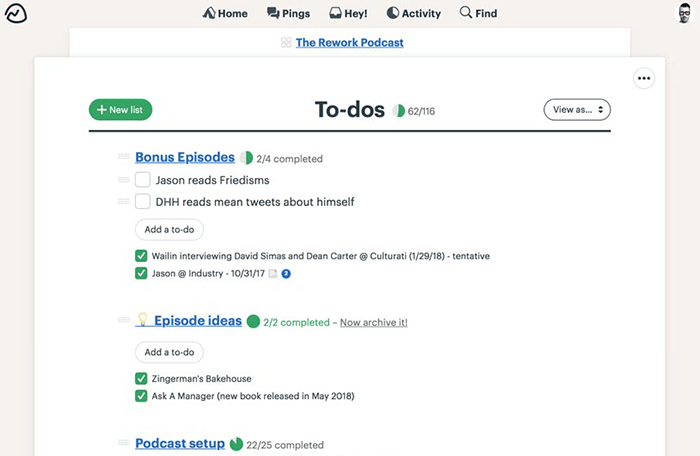
Pricing: $15/user/month or $299/month for unlimited users
Rating on Capterra: 4.3/5
Unlike Asana, which is mainly focused on task management, Basecamp is an all-in-one team collaboration tool. It brings together to-do lists, calendars, instant messaging, document and file management, and more, allowing any team to manage their projects in one place. It has been particularly popular as a remote collaboration tool.
Like Trello, Basecamp makes it easy to directly involve external partners and clients, having full control over what information you share with them.
Basecamp is also one of the rare tools that charge a flat monthly fee rather than making you pay per user. That makes it a much more scalable option for large and growing teams.
What makes Basecamp a great alternative to Asana:
Basecamp offers built-in workflows for engaging and collaborating with external clients.
The intuitive interface of Basecamp is easy to interact with using drag-and-drop.
Basecamp charges a flat monthly fee, regardless of the number of users you add.
Learn more about how Basecamp compares to Asana: Asana vs Basecamp.
Looking for more tools similar to Basecamp? Check out this list of Basecamp alternatives.
What users say about Basecamp:
"Basecamp has been a huge sigh of relief for me. It's extremely convenient and I find myself focusing on my work more, as compared to checking Slack/ Google Drive/ Asana every time I need to see some project updates and files. Basecamp is not perfect, and it can use some work on some fronts but it is pretty good as it is now too."
7. Wrike
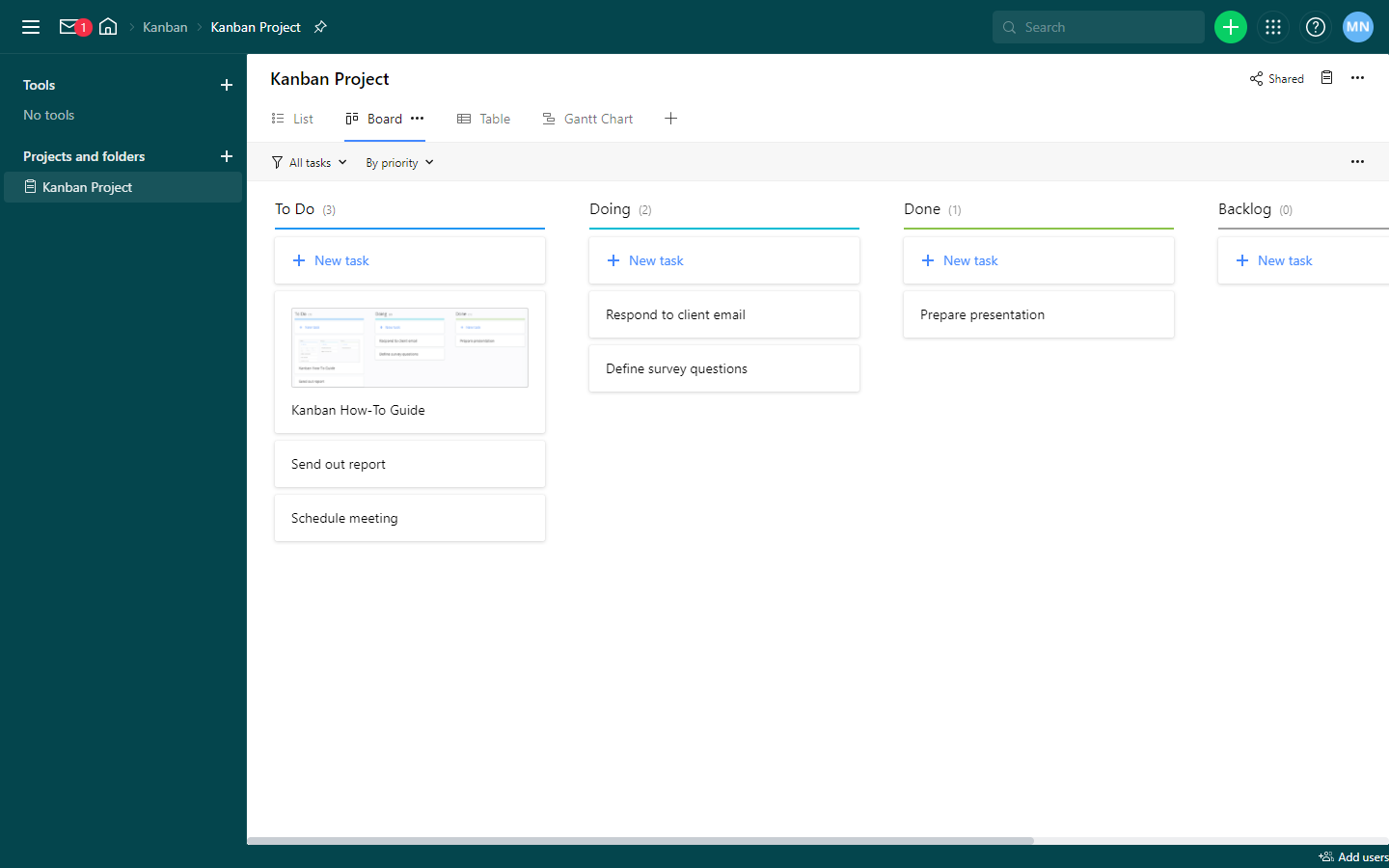
Pricing: Free, advanced features starting from $9.80/user/month
Rating on Capterra: 4.3/5
If you are looking for a powerful alternative to Asana and aren't intimidated by a bit of a learning curve, consider Wrike. Described by some users as "Asana on steroids", Wrike boasts a very extensive feature set and is best suited for larger companies.
Wrike offers a unique way to structure your work, allowing you to nest projects inside folders to create a totally customizable working hierarchy. Whether you want to organize by client, by team member, by project, or by function, Wrike lets you set it up. The fully customizable dashboards provide a helpful overview of all your work.
The interface of Wrike may not look as modern or playful as that of Asana, but if you are looking for a more mature solution, this may be the right trade-off for you.
What makes Wrike a great alternative to Asana:
Wrike is optimized for larger teams that like to customize everything about their solution, from tasks to reporting dashboards.
Wrike offers advanced Gantt charts in place of Asana's relatively simple timeline view.
Wrike offers built-in time tracking, whereas Asana requires integrations with tools like Everhour and Harvest.
Learn more about how Wrike compares to Asana: Asana vs Wrike.
Looking for more tools similar to Wrike? Check out this list of Wrike alternatives.
What users say about Wrike:
"I found Wrike and saw that everything Asana was releasing and charging more for, was already available in Wrike even before Asana. So we moved to Wrike and we're happier than ever."
8. Monday
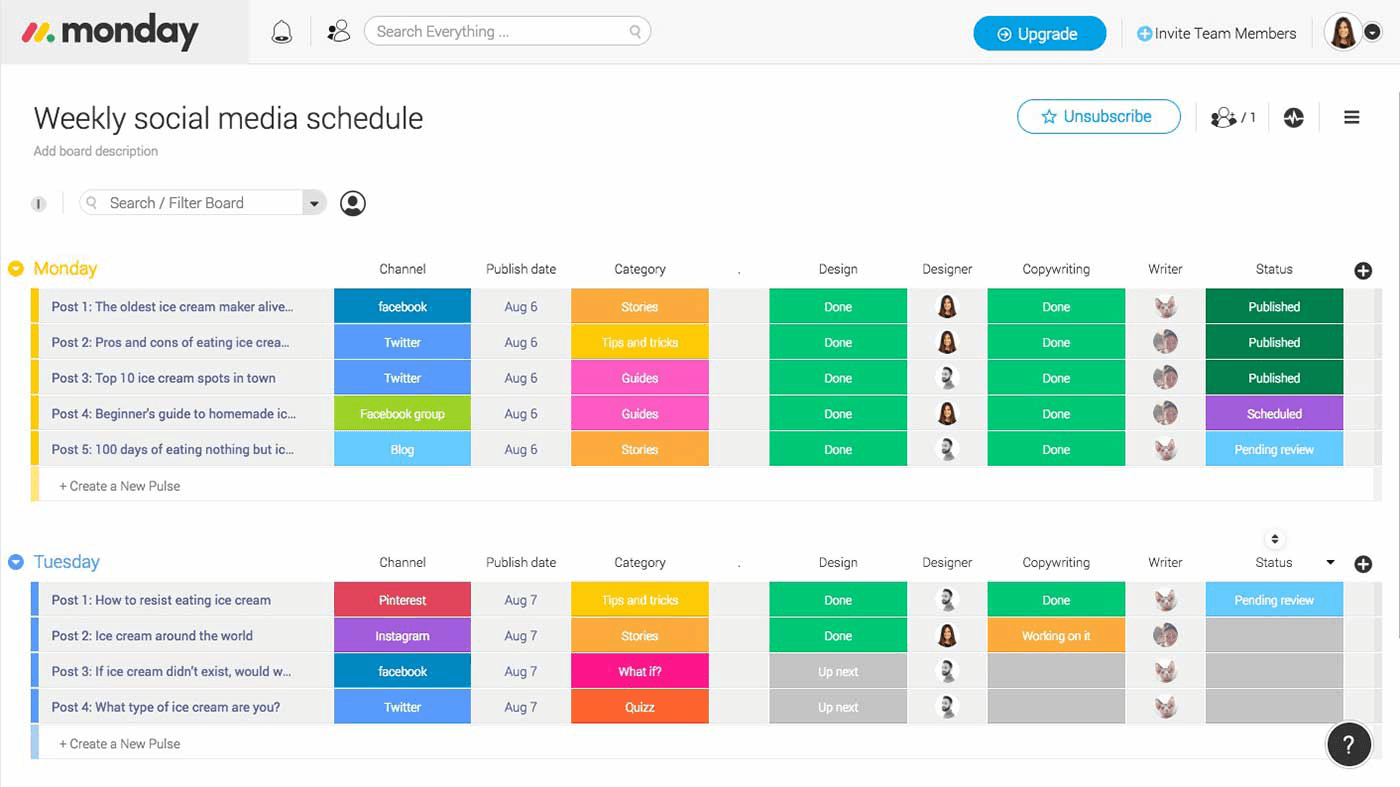
Pricing: Starting from $8/user/month
Rating on Capterra: 4.6/5
If you find Asana to be a bit too limited and restrictive for your needs, Monday may be a great alternative for you.
Monday stands out thanks to its exceptional customizability, allowing you to flexibly modify anything, from boards and timelines to dashboards and formulas. Its powerful automation features constitute another notable strength, making it easy to schedule automatic task status updates, activity reports, and more.
One thing to keep in mind about Monday is its pricing model when it comes to allocating users. You have to add new users in increments of five, which may force you to pay for users that you don't need. If you're working with a tight budget, this may not be the best tool for your team.
What makes Monday a great alternative to Asana:
Monday is more customizable and flexible than Asana.
Monday offers more advanced automation capabilities.
Monday is more affordable than Asana (but less flexible when it comes to adding new users).
Learn more about how Monday compares to Asana: Monday vs Asana.
Looking for more tools similar to Monday? Check out this list of Monday alternatives.
What users say about Monday:
"Our advertising agency switched from Asana to Monday because of the robust and customizable features. We love the ability to add multiple date fields to columns on various boards and the ability to duplicate templates saves us so much time. Monday also features very sophisticated templates to apply and modify to your projects. It truly makes project management so much more efficient for us."
9. Microsoft Project
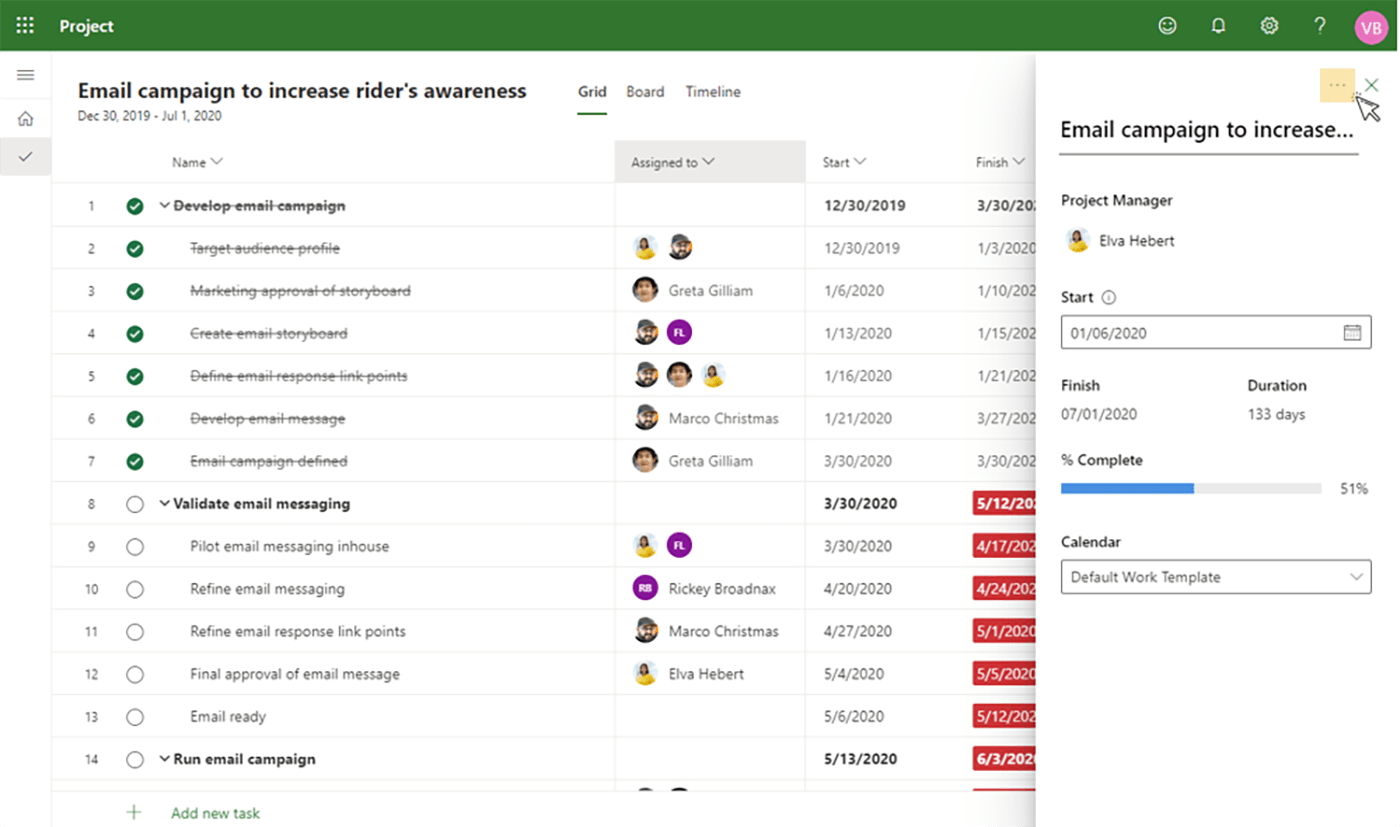
Pricing: Free, advanced features starting from $10/user/month
Rating on Capterra: 4.4/5
Launched almost 40 years ago, Microsoft Project is used by thousands of companies across the world. Like most Microsoft products, it's a tool many love to hate, but if your organization is already powered by Microsoft, it may be an obvious choice as an alternative to Asana.
Microsoft Project is considerably more complex than Asana and may not be a great solution for simple task management, but if you need to manage complex, large-scale projects with multiple stakeholders, it will get the job done.
What makes Microsoft Project a great alternative to Asana:
Microsoft Project is a very mature piece of software with a powerful feature set.
Microsoft Project provides offline access.
Microsoft Project is available as both, a cloud-based, and an on-premises solution.
Learn more about how Microsoft Project compares to Asana: Microsoft Project vs Asana.
Looking for more tools similar to Microsoft Project? Check out this list of best Microsoft Project alternatives.
What users say about Microsoft Project:
"Asana was good but didn't quite have all the features I needed. It also required an Internet connection to access which I didn't always have. Microsoft Project handles most of my large projects and allows easy reporting to people. I used it for years now and don't plan on changing. Done a few online courses to learn to use it properly and well worth it."
10. Microsoft Planner
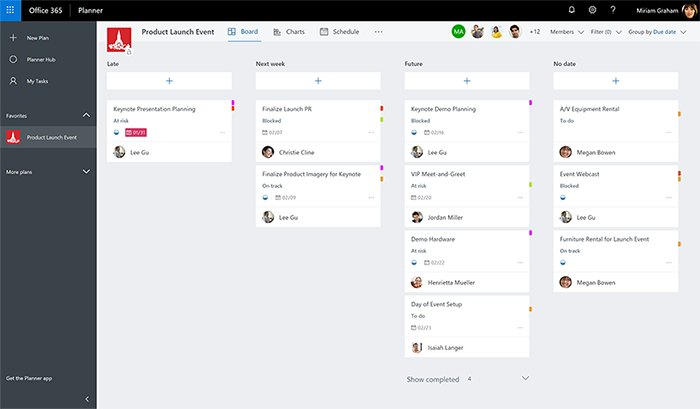
Pricing: Starting from $5/user/month
Rating on Capterra: 3.9/5
Microsoft Planner is another great Asana replacement built by Microsoft. It offers many of the same features as Asana, including the ability to create tasks, assign them to team members, and track progress, though Asana is more customizable and has more third-party integrations.
One of the main advantages of Microsoft Planner over Asana is its integration with other Microsoft products. For example, you can link tasks in Planner to related emails in Outlook, and use SharePoint to store and collaborate on related files.
It always depends on the specific needs of the organization, but Microsoft Planner can be a good alternative to Asana, particularly for teams that are already using Office 365 and don't require more advanced project management capabilities.
What makes Microsoft Planner a great alternative to Asana:
Microsoft Planner is integrated with other Microsoft products, such as Office 365.
Microsoft Planner is considerably more affordable than Asana.
Learn more about how Microsoft Planner compares to Asana: Microsoft Planner vs Asana.
Looking for more tools similar to Microsoft Planner? Check out this list of best Microsoft Planner alternatives.
What users say about Microsoft Planner:
"I have really enjoyed using Planner for what it is — basic project and task management. Super simple to use and with a good range of functionality, Planner is a light project management tool that is an important part of the Office 365 suite."
11. Microsoft To Do
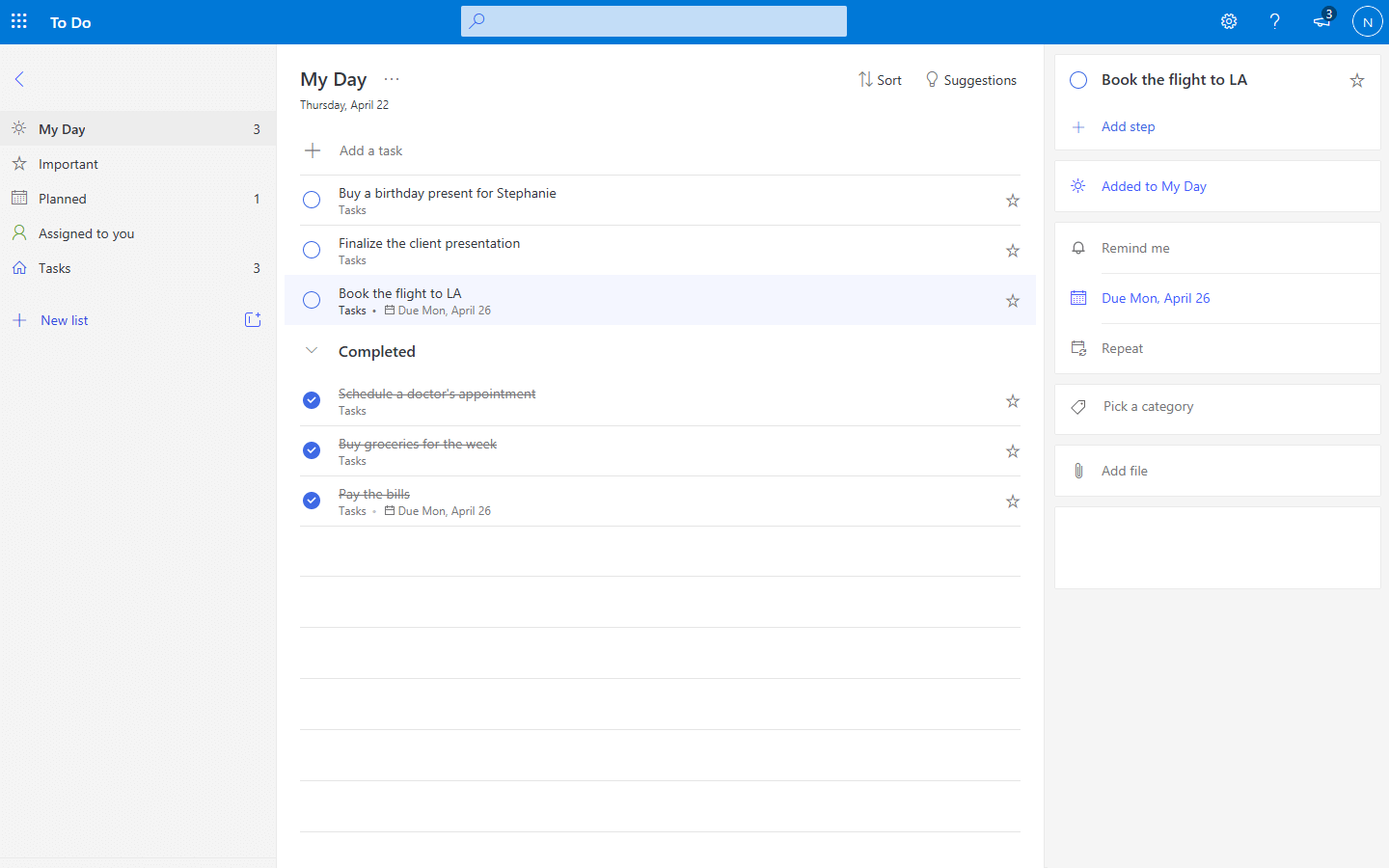
Pricing: Free
Rating on Capterra: 4.6/5
Microsoft To Do (formerly Wunderlist) can be a great Asana substitute for people who are looking for a simple and easy-to-use personal task management app, but who don't need the advanced features and collaboration capabilities provided by more full-featured project management apps like Asana. With MS To-Do, users can create basic task lists and set reminders and due dates, but the app lacks some advanced features like assignments, Gantt chart, or custom fields, it is more suited for personal use than a team collaboration tool.
A unique feature called "My Day" allows users to focus on the most important tasks of the day. Microsoft To Do is integrated with other Microsoft products, such as Outlook.
What makes Microsoft To Do a great alternative to Asana:
Microsoft To Do is integrated with other Microsoft products, such as Outlook.
Microsoft To Do is a much simpler task management app and is easier to get the hang of.
Microsoft To Do is optimized for personal task tracking.
What users say about Microsoft To Do:
"The platform is simple - you just create checklists. I use this to keep track of all work that needs to be done. You can also add other people to lists if you want to manage your employees. Honestly, this is the best project management tool I've used because of how simple it is. I've tried Asana, Basecamp, and Trello but I prefer the simplicity of Microsoft To Do."
12. Zoho Projects
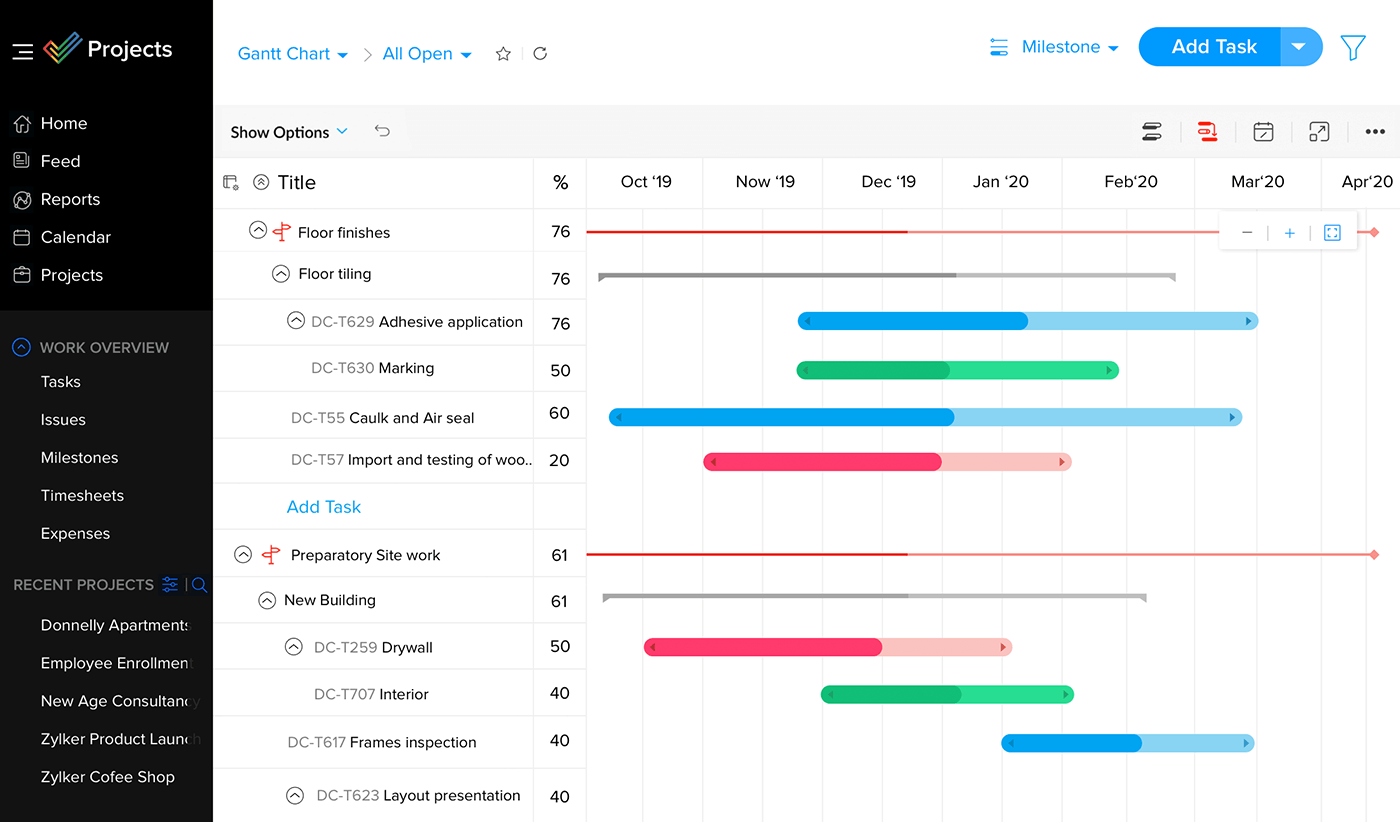
Pricing: Free, advanced features starting from $5/user/month
Rating on Capterra: 4.2/5
If you are looking for a more affordable alternative to Asana, Zoho Projects is one of the cheapest options out there. But don't let the low price tag deceive you — Zoho Projects is a comprehensive project management tool with an extensive feature set that includes Gantt charts, Kanban boards, time tracking, custom fields, and more.
Being a part of the Zoho Office Suite, Zoho Projects integrates well with other products in the Zoho ecosystem, such as Zoho CRM, making it easy to keep all your work in sync.
What makes Zoho Projects a great alternative to Asana:
Zoho Projects can do most of what Asana can at a much lower cost.
Zoho Projects integrated with other Zoho products.
What users say about Zoho Projects:
"Zoho Projects is probably the best tool on the market... but a close second and third are Asana and Wrike. Everything about it is amazing. They have clearly thought through UI and UX from a user's standpoint. However, the basic version of this software is useless. You need premium or enterprise."
13. Todoist
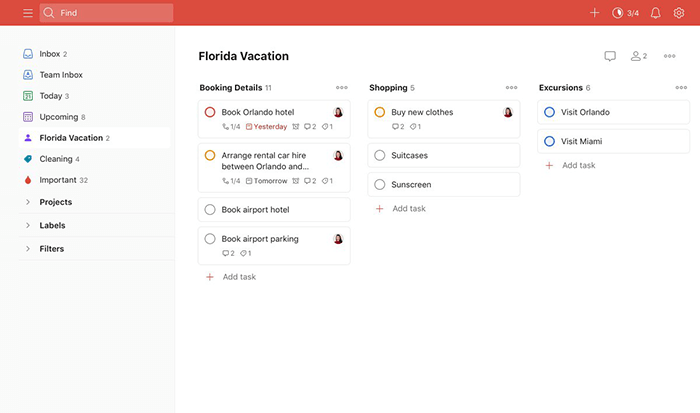
Pricing: Free, advanced features starting from $4/user/month
Rating on Capterra: 4.6/5
Like Asana, Todoist started out as a simple to-do app. While Asana has since evolved into a complex project management platform, Todoist aimed to preserve its simplicity. If you are looking for a simpler, more minimal version of Asana, it can be a great choice.
While Todoist is best suited for personal projects, after it introduced a Kanban board view along with a series of new collaboration features in 2020, it's becoming increasingly popular among small teams and companies. Its feature set is more limited than that of Asana, which allows it to lower the learning curve for new users and offer a cleaner, simpler interface.
What makes Todoist a great alternative to Asana:
Many users find Todoist to be more intuitive than Asana.
Todoist has a cleaner, distraction-free interface.
Todoist is more affordable than Asana.
Learn more about how Todoist compares to Asana: Todoist vs Asana.
Looking for more tools similar to Todoist? Check out this list of Todoist alternatives.
What users say about Todoist:
"I switched from Asana because it had too many features. I didn't need 90% of what Asana had to offer. I just needed a simple (but powerful) desktop app to handle my day-to-day tasks. And that's what Todoist does best. The thing I liked the most is that Todoist is really easy to use. I'm not a big fan of task management software... but Todoist offers a perfect balance between ease of use and functionality. Todoist is a very intuitive software unlike others I've tried... It only will take you 5 minutes to personalize it to your preferences, and you'll be good to go."
14. nTask
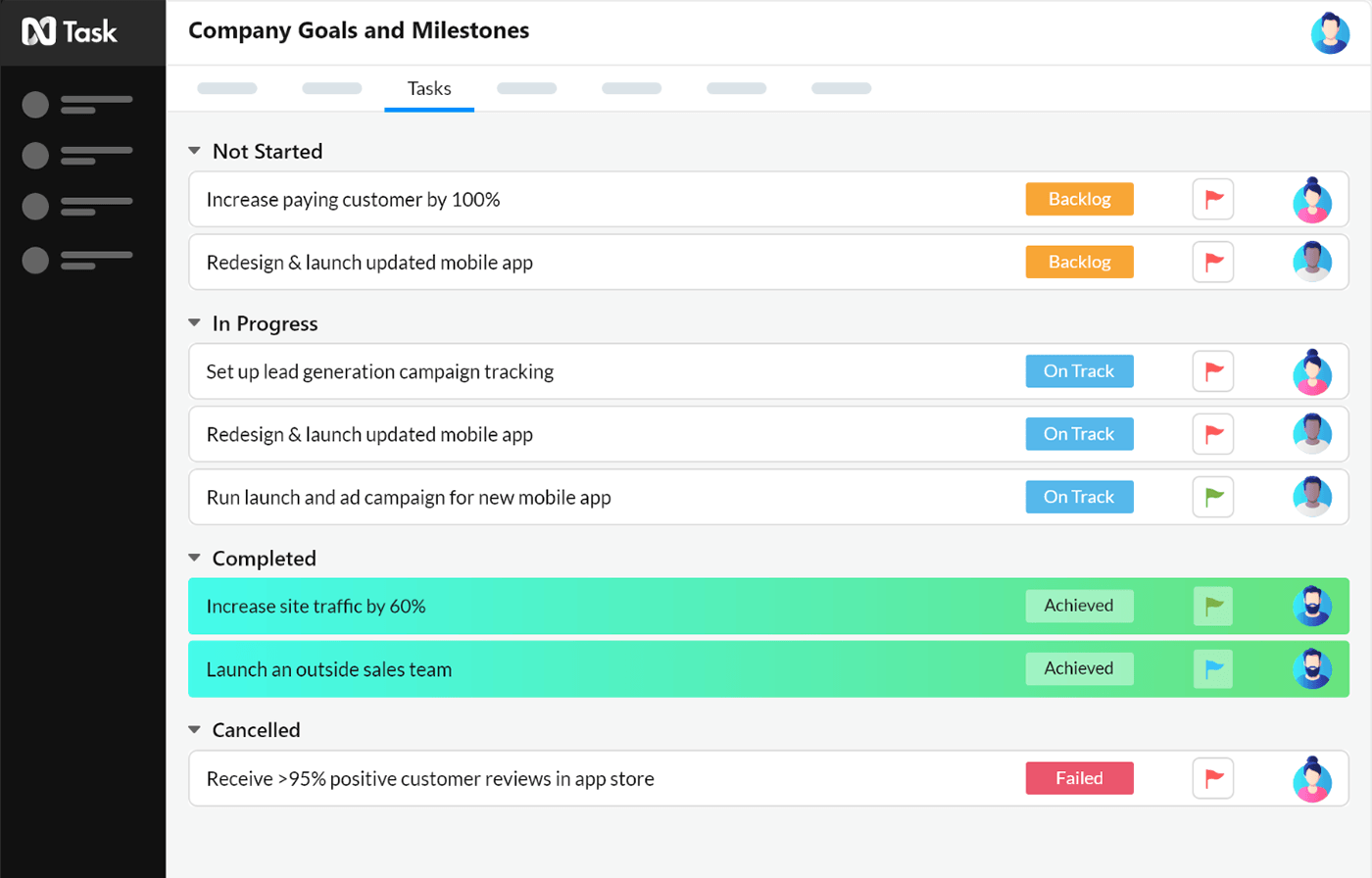
Pricing: Free, advanced features starting from $4/user/month
Rating on Capterra: 4.2/5
If you are looking for a task management and project management application to replace Asana, consider nTask. This is a great tool that allows you to easily track and manage all of your projects and tasks.
The application offers a wide range of different features, including risk management, meeting management, issue tracking, Kanban boards, Gantt charts, team management, and many third-party integrations among many others.
Let's take a look at some of the distinguishing features that make it a great Asana alternative.
What makes nTask a great alternative to Asana:
nTask offers time tracking so that you can easily keep track of the time that your team is spending on their work.
nTask offers risk management to make sure that all of the scope creeps and risks are tracked and addressed before they interfere with the project.
nTask offers recurring tasks and Gantt chart functionality.
Learn more about how nTask compares to Asana: nTask vs Asana.
What users say about nTask:
"Overall, my experience was delightful and positive. nTask had just enough to meet our needs and expectations. It's suitable for beginners or smaller businesses as well. It is affordable and still up to par on quality. nTask helped us improve our overall business and particularly helped our office run smoother and stay organized. It is an effective task management software."
Find the right Asana alternative for your team
When it comes to project management tools, one size does not fit all. Asana is a robust and modern solution — but it's not for everyone. Every team has its unique workflow when it comes to managing tasks and projects, and different tools may fit that workflow better.
Finding the right project management tool can seem like a daunting task, but the good news is there are plenty of alternatives out there to choose from. New Asana competitors also enter the market every year. These tools can offer different features, pricing plans, and integrations that might be a better fit for you and your team.
At the end of the day, the only way to know if a tool will work for your team is to actually test it. So take your time, do your research, and find the tool that will help your team thrive. You might discover new features, new ways of working, and boost your productivity in the process. We hope that this list made your evaluation process a little easier.
Ready to get started?
